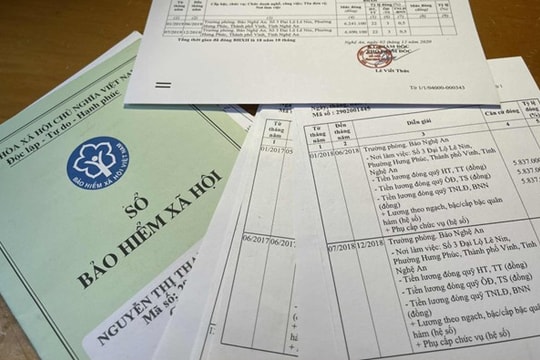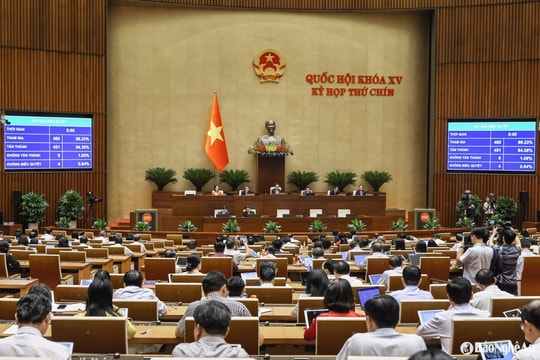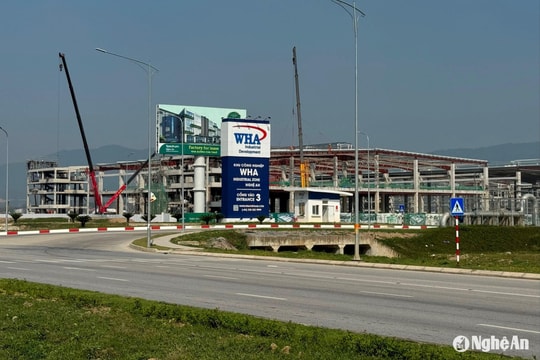Minimum wage 2018 will be decided in early August
Representatives of the workers said that all socio-economic indicators in the first 6 months of this year were good, so the regional minimum wage in 2018 cannot be lower than in 2017... Although representatives of employers and workers have made moves to show goodwill, they have not been able to find a common voice after 2 meetings of the National Wage Council.
At the second meeting on July 28 of the National Wage Council, the plan to increase the regional minimum wage in 2018, the gap between the proposed levels of employers' and employees' representatives was narrowed.
 |
| Raising wages is beneficial for workers, but business owners will probably worry more. Illustration photo |
In the first meeting, the employee representative proposed a wage increase of about 13%, the employer representative proposed a 4% increase. At the second meeting, each side had made adjustments to the minimum wage increase, the employee representative reduced the regional minimum wage increase to 8%, and the employer representative also increased the proposal to 5%. However, the parties have not yet agreed on a common plan.
Explaining the proposed level of the labor representative agency, Vice President of the Vietnam General Confederation of Labor Mai Duc Chinh said: “The proposed level of 13.3% that we have put forward is an expectation to end the path of the minimum wage having to chase the minimum living standard.
Representatives of the workers said that all socio-economic indicators in the first 6 months of the year were better than in 2016. Therefore, the regional minimum wage in 2018 cannot be lower than in 2017.
However, according to Mr. Mai Duc Chinh, in order to consider other factors and ensure harmonious interests between employees and businesses, including taking into account the ability to pay of businesses, the General Confederation of Labor has considered proposing a rate of 8% to ensure harmony in the ability to pay of businesses, as well as to ensure improved interests of employees.
In addition, according to a survey by the Vietnam General Confederation of Labor in 17 provinces and cities, the results showed that only over 51% of workers have an income just enough to cover their living expenses; more than 20% have to spend frugally and austerely; 12% have an income that is not enough to live on and only 16% of workers can save.
On the employer side, explaining the reason for the proposed 5% increase, Vice President of the Vietnam Chamber of Commerce and Industry (VCCI) Hoang Quang Phong said that the decision to increase the minimum wage at the above level is based on actual labor productivity, CPI index, job quality, and the ability of businesses to pay.
According to Mr. Phong, in the current conditions, the capacity of enterprises has improved but most of them still face many difficulties. Especially enterprises using a large number of workers in the textile, footwear, seafood and electronics assembly industries...
Although both sides have "raised and lowered" the difference, because the gap is still at 3%, the Wage Council has decided to stop the discussion so that the parties can consolidate more data, make more convincing references, and defend their arguments.
The National Wage Council is scheduled to hold its third meeting on August 7 to decide on the minimum wage.
According to Deputy Minister of Labor, War Invalids and Social Affairs, Chairman of the National Wage Council Doan Mau Diep, with the increase in regional minimum wages, workers expect to improve their highest wage benefits, but businesses want to reduce costs, increase profits and accumulate for production, creating surplus value. The State wants the labor market to operate healthily, workers to have income and businesses to develop.
Because of that difference, it is normal for the proposed options to differ and negotiations are needed to find a balance.
“Of course, the Labor Law affirms that the minimum wage must meet the minimum living standard,” Mr. Diep said.
Besides, applying administrative management mechanism to negotiation is not appropriate but must be based on consensus principle.
In the regulations of the National Wage Council, if the parties cannot find common ground, members are required to participate in voting, even if they abstain, and must be responsible to the collective they represent.
The National Wage Council is expected to hold its third meeting on August 7 to decide on the minimum wage.
According to Bao Quyen/vneconomy
| RELATED NEWS |
|---|








